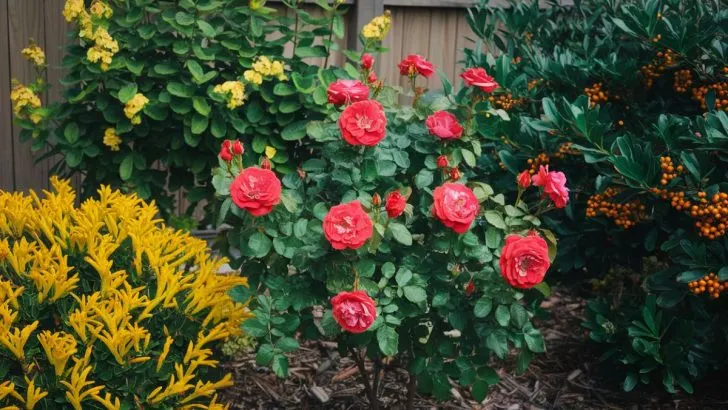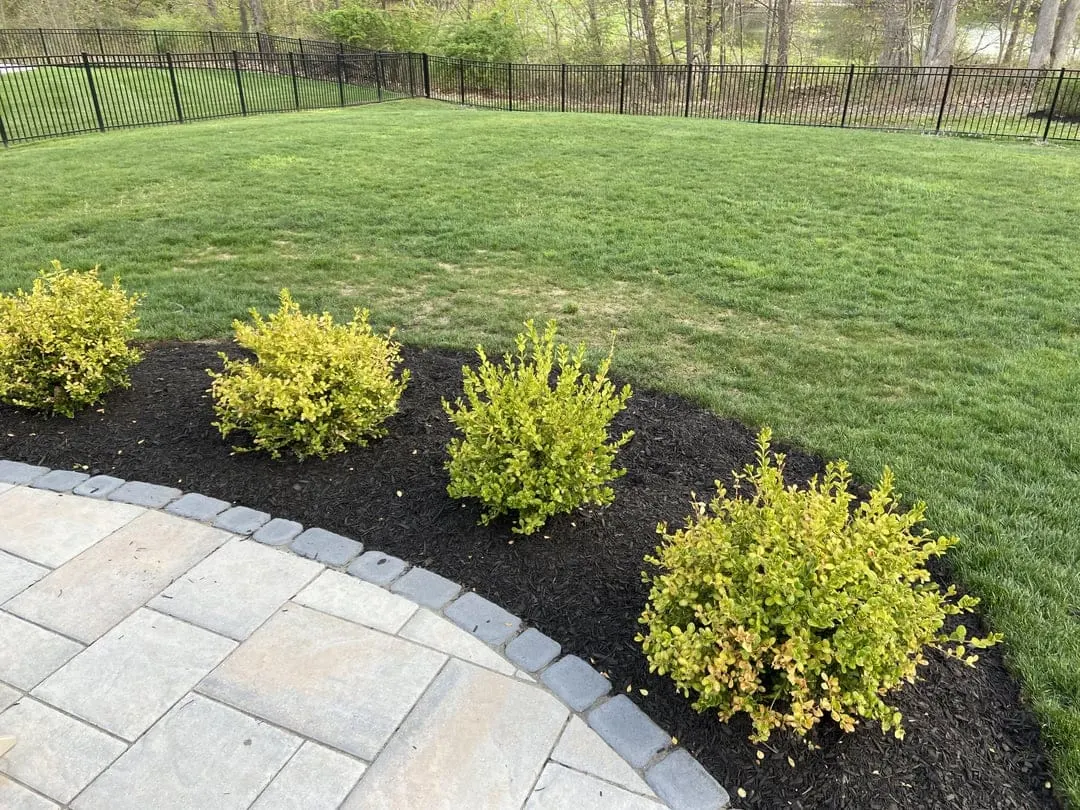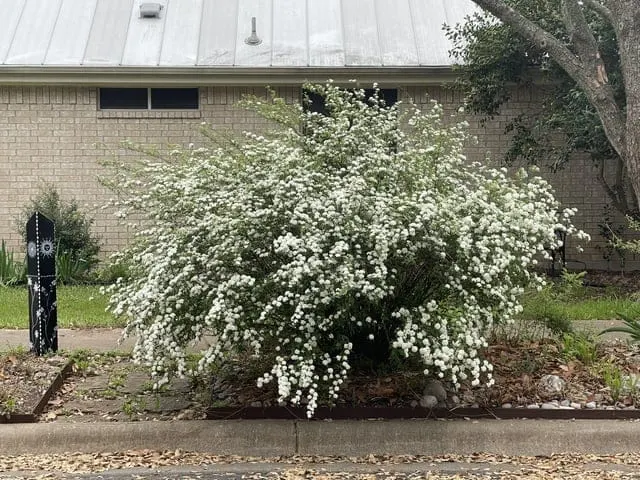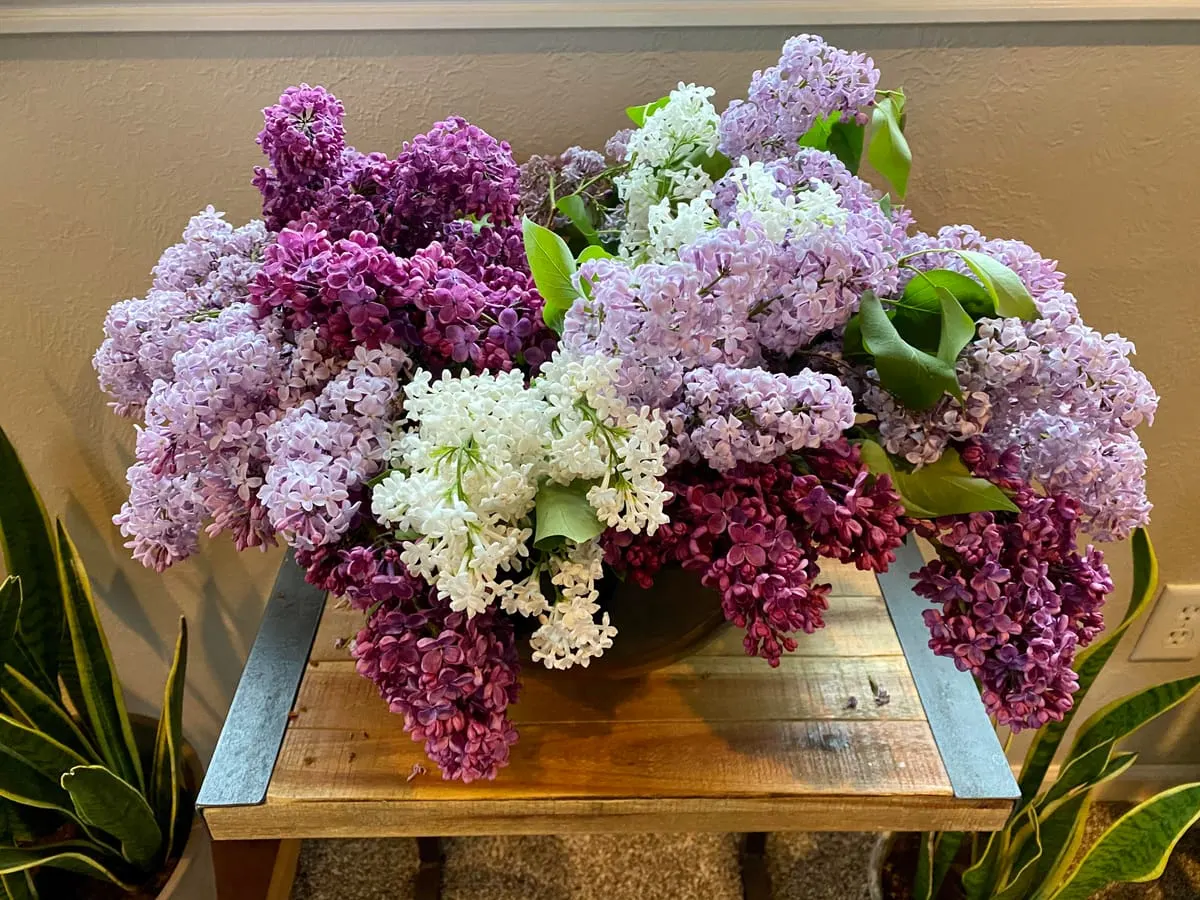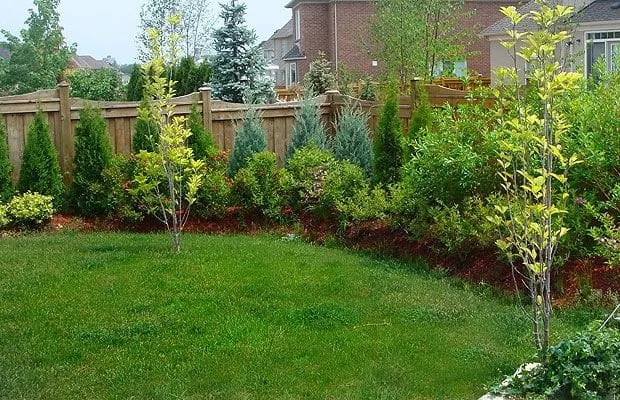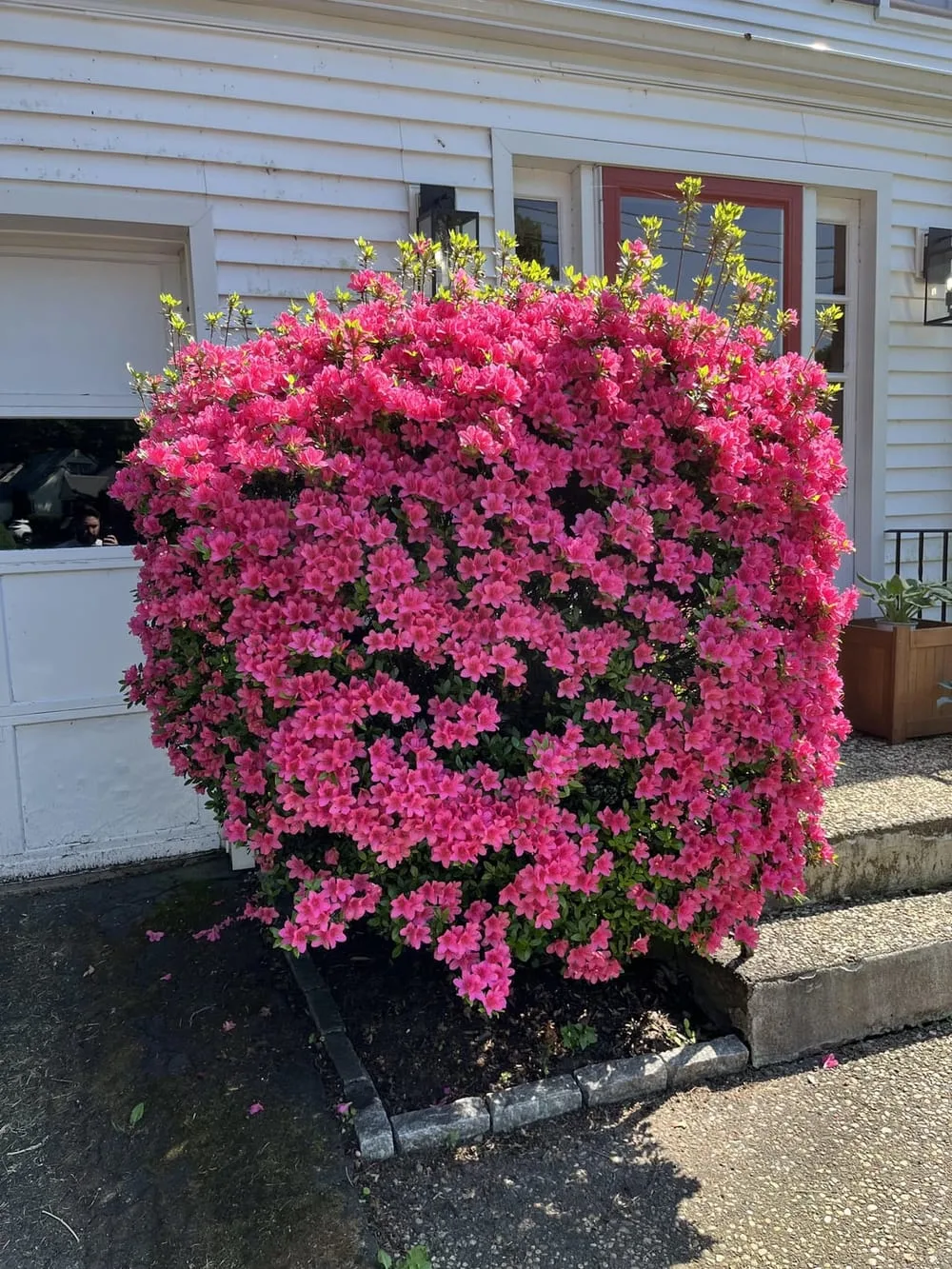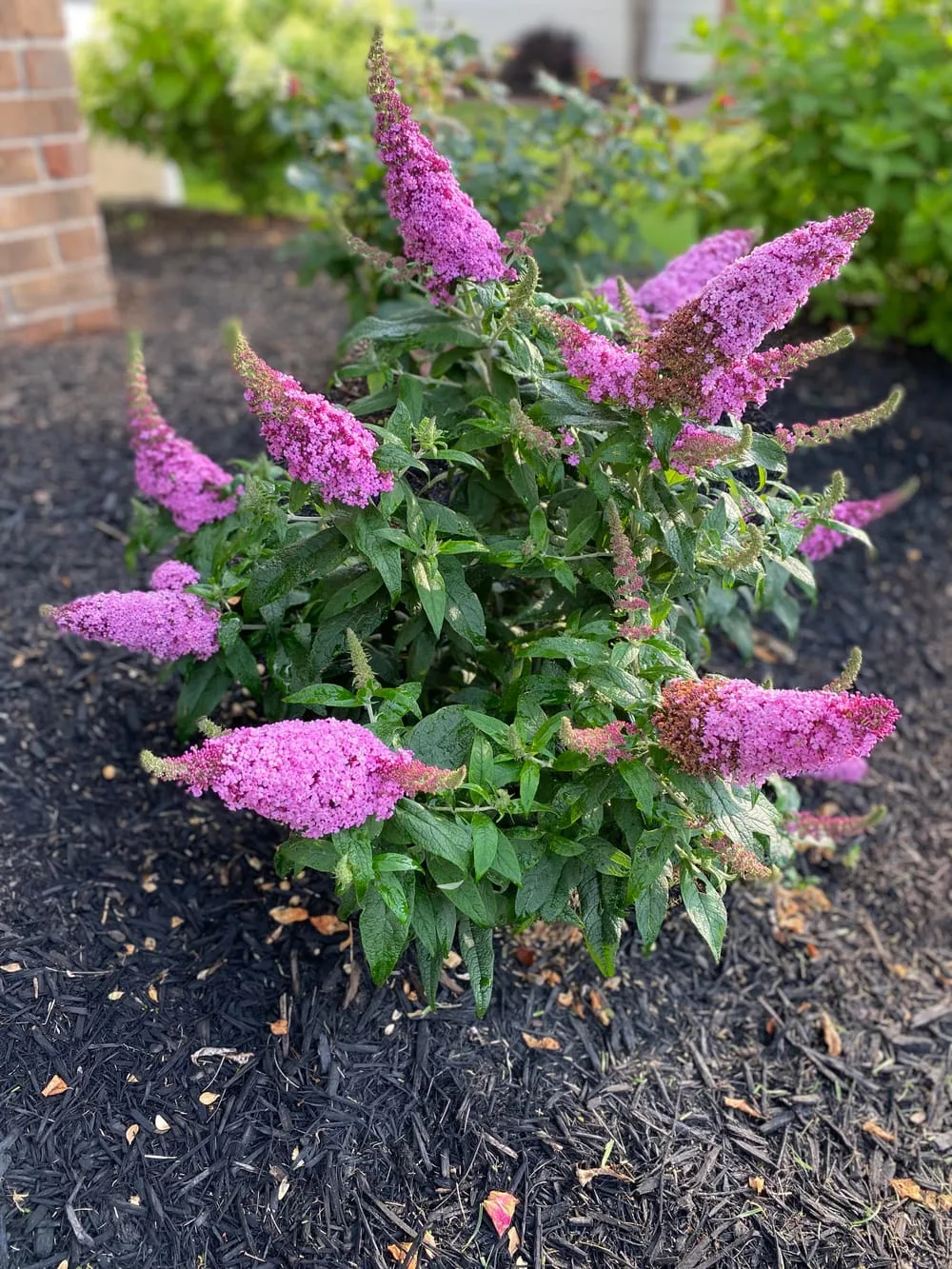If your roses aren’t thriving as you’d hoped, the key issue might be lurking in what’s planted nearby. It’s not just about sunlight and soil; companion planting plays a crucial role in your garden’s health.
Choosing the right plants to share space with your roses can have a remarkable impact on their health and bloom quality. Let’s explore why certain shrubs can be detrimental and how to optimize your garden for healthier roses.
Understanding which plants to avoid is vital for every gardener. Certain shrubs compete for the same resources or attract pests that can harm your roses.
Knowing which plants to sidestep can help your roses flourish, giving you the vibrant blooms you desire.
1. Boxwood
Boxwood might be a popular choice for its evergreen appeal, but it’s a water hog. These shrubs are particularly thirsty, drawing significant moisture away from your roses. This competition for water can lead to stressed and weaker rose bushes, resulting in fewer blooms.
Moreover, both boxwoods and roses require high grooming standards, making them a demanding duo in terms of maintenance. If you’re set on having both in your garden, consider spacing them out and installing a separate watering system to cater specifically to your roses.
2. Spirea
Spirea offers a lovely, cascading floral display, but its fast-growing nature can overshadow your roses. The dense foliage of spirea can obstruct sunlight, an essential factor for rose health. Roses need ample sunlight to thrive, and spirea’s rapid growth can steal away this vital resource.
To ensure both plants thrive, consider frequent pruning of your spirea to maintain a balance, or choose a smaller, more controlled variety that won’t compete as aggressively with your roses.
3. Lilac
Lilacs are cherished for their fragrance, but they can be a tough neighbor for roses. Lilacs tend to develop extensive root systems that compete directly with roses for nutrients. This can stifle your roses’ growth, making it difficult for them to reach their full potential.
If you’re passionate about both lilacs and roses, position them sensibly apart in your garden to minimize root interaction and competition for nutrients.
4. Pine Trees
A surprising entry, but pine trees are not ideal companions for roses. They shed acidic needles, which lower the soil pH and create an unfavorable growing environment for roses. Additionally, pine trees cast substantial shade, which can stunt rose growth.
If your garden space requires proximity between these two, diligently clear fallen needles to maintain a neutral pH in your rose beds, ensuring they have access to sufficient light and nutrients.
5. Azalea
Azaleas are beautiful, but their preference for acidic soil means they aren’t the best neighbors for roses, which prefer a more neutral to slightly acidic pH. This mismatch can lead to soil conditions that are suboptimal for roses, impacting their growth and flowering.
To coexist, separate these plants into distinct garden areas where soil acidity can be managed independently to cater to each plant’s needs.
6. Butterfly Bush
The charm of a butterfly bush lies in its ability to attract pollinators, yet it can overpower roses with its rapid growth and substantial size. The shade and competition for resources that result can significantly affect rose performance.
Regular pruning and controlled planting can mitigate these issues, but distance remains the best solution. Ensure your roses have the space and access they need to thrive without competing with the vigorous butterfly bush.
Cultivating a Harmonious Garden
Achieving a thriving rose garden isn’t just about what you plant, but where you plant it. By avoiding these incompatible shrubs, you give your roses room to breathe, grow, and bloom beautifully. Remember, the key to a healthy garden lies in balance. Consider layout, plant needs, and growth habits to create a garden where all your flora can flourish.
Take the time to assess your garden layout. Thoughtful planning and mindful planting will not only benefit your roses but will contribute to a healthier, more vibrant garden overall. Happy gardening!

